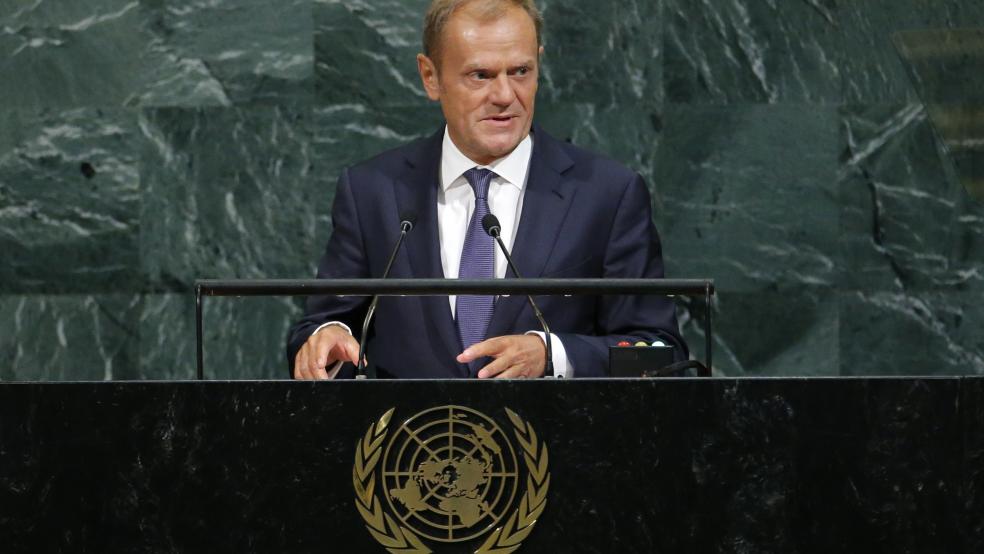BRUSSELS (Reuters) - The chairman of European Union leaders Donald Tusk has called a euro summit for December to discuss improvements to the single currency area after Britain leaves the EU in March 2019, with the aim of reaching decisions on key issues by June 2018.
In a letter to EU leaders inviting them to a meeting in Tallinn next week, Tusk said the key issues included a common backstop for the euro zone's bank resolution fund, a reduction of risks in banks and a pan-European deposit insurance scheme. He said leaders should also enhance Europe's capacity to act in a crisis by developing the euro zone bailout fund ESM into a European Monetary Fund - an idea first floated by Germany."In order to advance this agenda I will call a Euro Summit in December in an inclusive format," Tusk wrote in the letter."Concrete decisions on these issues should be taken at the European Council by June next year at the latest."There are 19 countries in the euro zone now, but Tusk's spokesman explained that an "inclusive format" meant all signatories to the Fiscal Compact treaty agreed in 2012 to bolster the euro zone during the sovereign debt crisis.The Fiscal Compact was signed by 25 countries - all EU members except Britain and the Czech Republic. Croatia, a member of the EU since 2013, was not part of the bloc at the time.The backstop for the euro zone's single resolution fund for banks is likely to be the ESM. Senior euro zone officials have said that talks on the issue were almost complete.The transformation of the bailout fund into a European Monetary Fund (EMF) is also widely supported among euro zone countries, although the exact competences of a future EMF are yet to be determined.But the issue of reducing risks in the banking sector and introducing a scheme that would guarantee all deposits up to 100,000 euros in all euro zone banks is politically more tricky.Germany refuses to agree to a deposit scheme until legacy problems in various national banking systems, for instance in Italy, are solved, so that German savers do not have to guarantee deposits in potentially more fragile banks elsewhere.Others argue that without a deposit guarantee scheme, the banking union - a project to stabilize the EU financial sector after almost a decade of turbulence - cannot be completed, and the banking system will remain vulnerable. (Additional reporting by Alastair Macdonald; editing by Andrew Roche)EU's Tusk calls summit in December on euro zone future

EDUARDO MUNOZ



